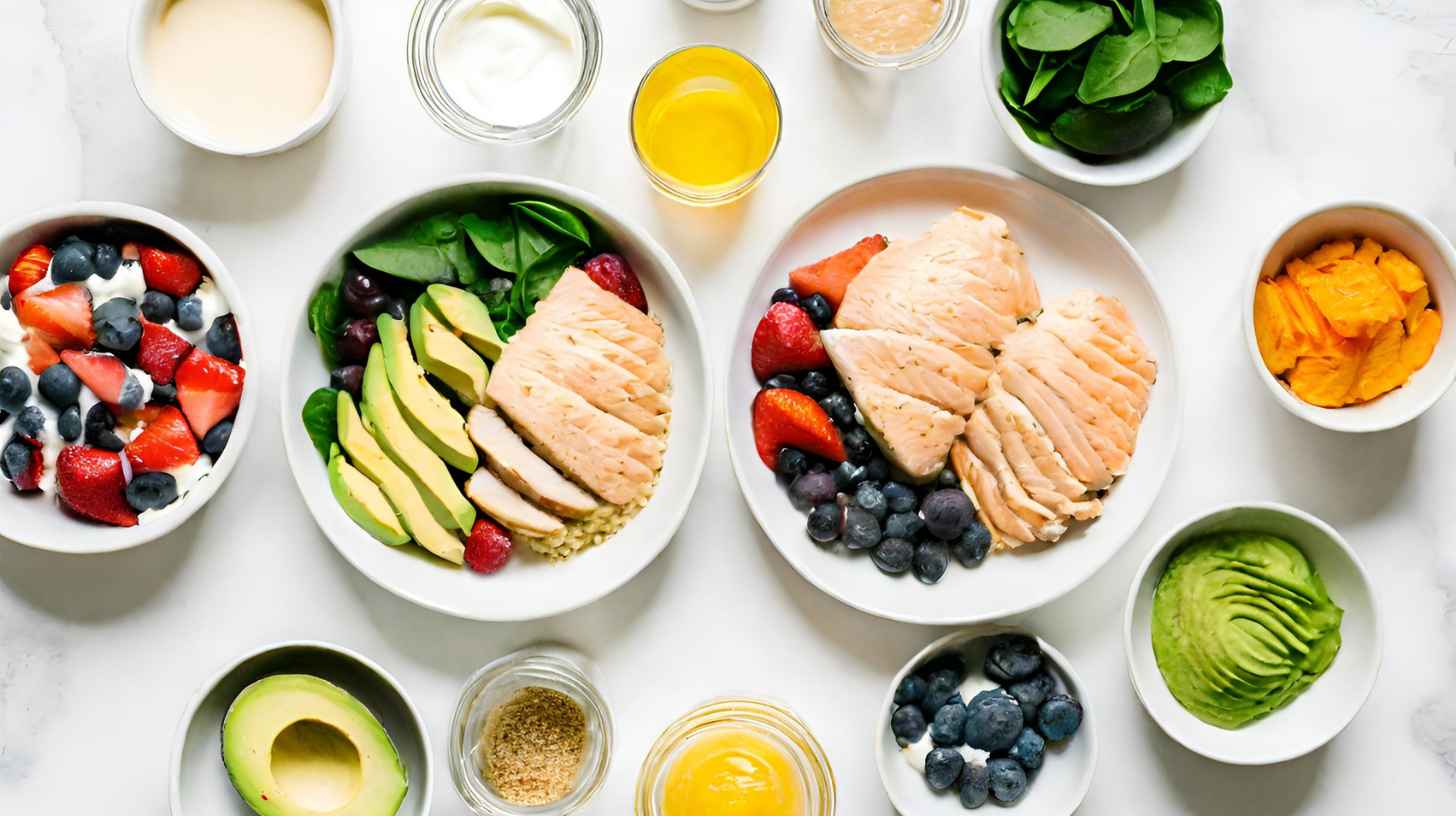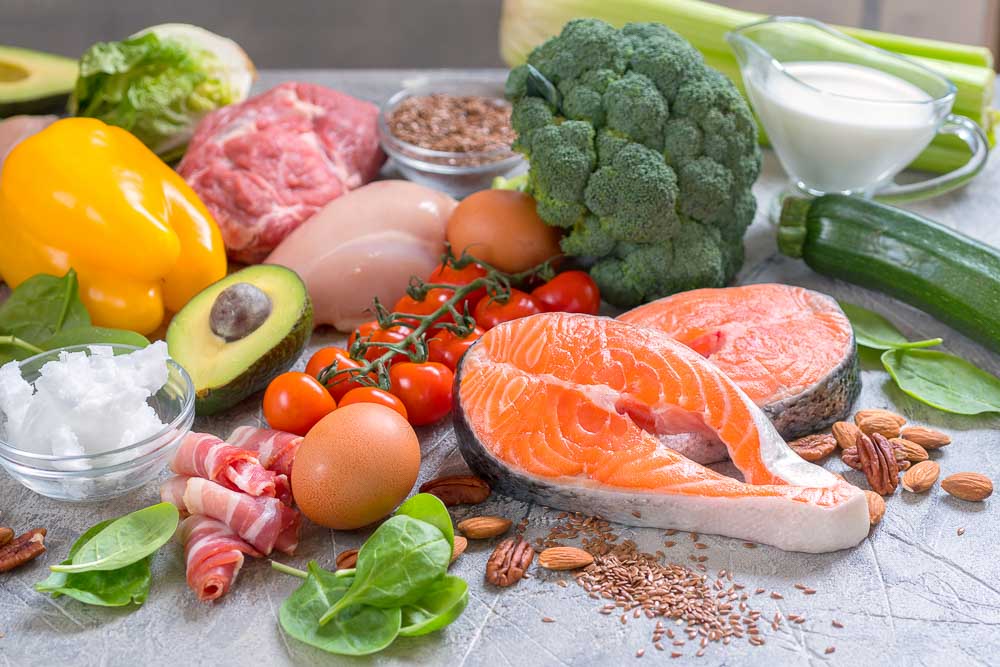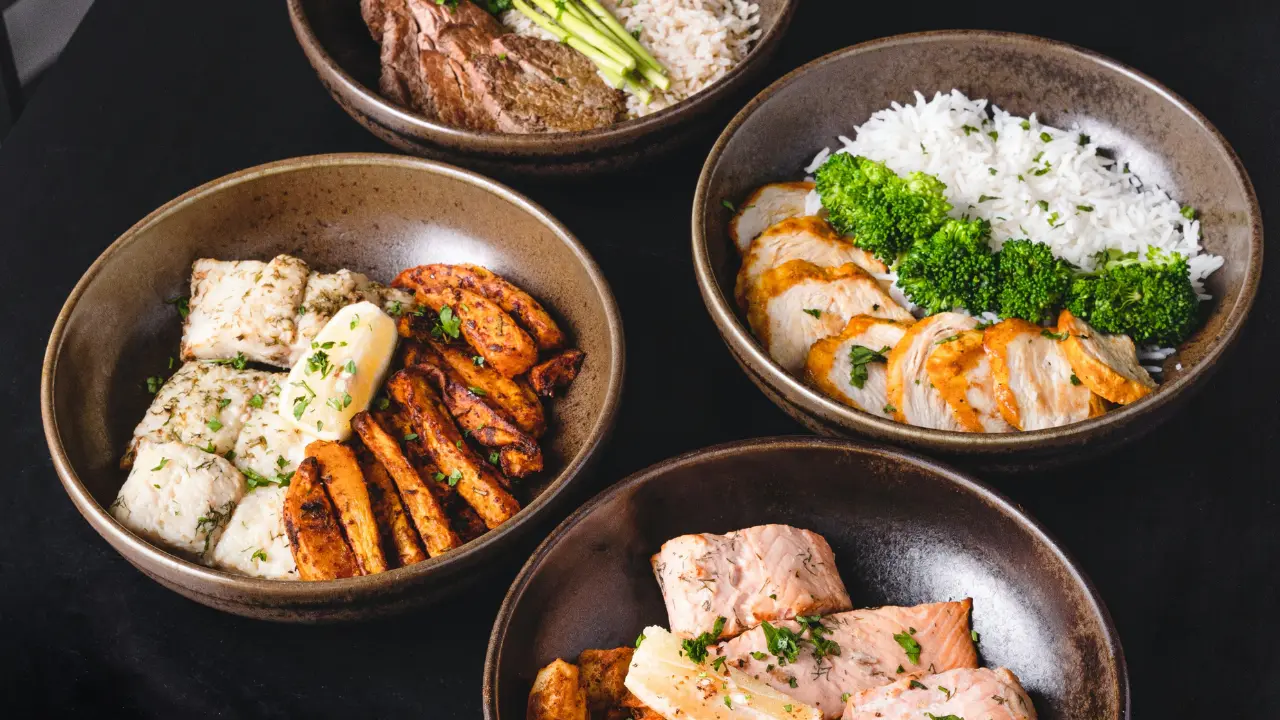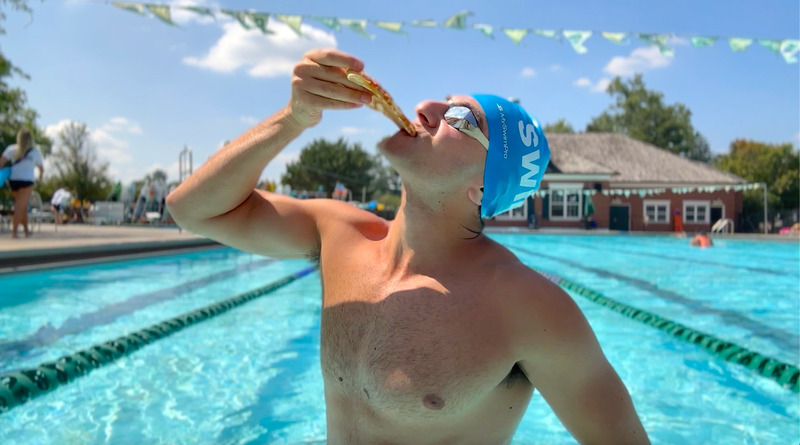Swimmers require a specialized diet to maintain energy levels, optimize performance, and ensure recovery. This article explores various aspects of nutrition tailored to the needs of swimmers, from pre-swim meals to recovery strategies and hydration. Understanding what to eat, when to eat, and the right balance of nutrients can significantly enhance a swimmer’s performance and overall health.
Key Takeaways
- A balanced diet with a mix of carbohydrates, proteins, and fats is essential for swimmers to maintain energy and performance.
- Pre-swim meals should be rich in carbohydrates to fuel intense swimming sessions.
- Recovery meals are crucial and should focus on protein and carbohydrates to repair muscles and replenish energy stores.
- Hydration is a critical component, with water intake prioritized before, during, and after swim sessions.
- Effective meal planning and the inclusion of snacks can help manage energy levels throughout training and competitions.
The Swimmer’s Diet: What to Eat for Peak Performance
Understanding the Importance of Nutrition
Proper nutrition is the backbone of any athlete’s performance, especially for swimmers who require sustained energy and muscle recovery. A well-balanced diet enhances endurance and speed, both crucial for competitive swimming.
Key Nutrients for Swimmers
To swim fast and recover quickly, focus on these essential nutrients:
- Carbohydrates: Fuel for training and races.
- Proteins: For muscle repair and growth.
- Fats: Healthy fats like olive oil and avocados for energy.
- Vitamins and Minerals: For overall health and energy metabolism.
Balancing Your Diet
A balanced diet for swimmers should include a variety of foods to meet energy demands and nutritional needs. Aim to fill half your plate with fruits and vegetables, a quarter with lean proteins, and a quarter with whole grains. Hydration is also a key component, so don’t forget to drink plenty of fluids before, during, and after your swims.

Balancing Your Diet
Read more: Effective Food Plans for Swimmers: Strategies for Nutritional Success
Pre-Swim Power-Ups: Meals to Kickstart Your Performance
Importance of a Hearty Breakfast
Starting your day with a nutritious breakfast is crucial for swimmers. A meal rich in complex carbohydrates and proteins can provide sustained energy and improve performance in the pool. Consider options like oatmeal with fruits and nuts, or whole-grain toast with eggs.
What to Eat Before You Dive In
Before hitting the pool, it’s important to focus on foods that are easy to digest yet energy-boosting. Bananas, yogurt, and a small portion of nuts make for an ideal pre-swim snack. This combination ensures you’re not weighed down and can perform at your best.
Timing Your Pre-Swim Meals
Eating at the right time before swimming can make a significant difference in your performance. Aim to have your main meal 2-3 hours before your swim to allow for digestion. A light snack 30 minutes prior can also help maintain energy levels without causing discomfort.
Remember, balancing your diet with the right nutrients and timing your meals can significantly enhance your swimming performance.
Post-Swim Recovery Meals: Refueling After the Pool
Why Recovery Nutrition is Crucial
After pushing through those laps, your body needs the right fuel to repair and recharge. Proper nutrition post-swim is essential for muscle recovery and energy replenishment. It’s not just about eating; it’s about eating the right stuff at the right time.
Best Foods for Muscle and Energy Recovery
Carbohydrates and proteins are your best friends after you hit the pool. They help restore your energy levels and repair muscle tissues. Here’s a quick list of some top picks:
- Sweet potatoes
- Quinoa
- Chicken breast
- Cottage cheese
- Bananas

Incorporating these foods into your post-swim meal can significantly enhance your recovery and prepare you for your next swim.
Read more: A Comprehensive Meal Plan for Swimmers to Enhance Endurance
Hydration and Post-Swim Meals
Rehydrating after swimming is just as important as the meal itself. Water should be your go-to, but sometimes you might want something with a bit more kick to restore electrolytes. Here are a few options:
- Coconut water
- Electrolyte-infused waters
- Sports drinks (in moderation)
Remember, it’s essential to consume a recovery meal or snack soon after swimming, especially if you have another training session or race the following day.
Hydration Strategies for Swimmers
Why Water is a Swimmer’s Best Friend
Water isn’t just a drink; it’s an essential part of your swimming toolkit. Staying well hydrated helps regulate body temperature, blood pressure, and aids in the transport of nutrients. Make it a habit to drink at least 16-20 ounces of water right after you wake up and keep sipping throughout the day.
How Much to Drink Before, During, and After Swimming
Hydration needs can vary, but a good rule of thumb is to drink 8-10 ounces of water every 20 minutes during exercise. For intense training sessions or competitions, consider incorporating sports drinks to replenish electrolytes and provide carbohydrates for energy.
Choosing the Right Beverages
While water should be your go-to, sometimes you need a bit more. Sports drinks can be a great option during long or intense swim sessions as they help maintain electrolyte balance and boost energy. Just be mindful of the sugar content and opt for those that offer the most benefits with the least additives.
Snacking for Success: Smart Snacks for Swimmers
Choosing the Right Snacks
Choosing the right snacks is crucial for maintaining energy levels and optimizing performance. Include a variety of lean proteins, carbohydrates, fruits, and nuts in your snack selection. Here’s a quick list of swimmer-friendly snacks:
- Whole-grain crackers with low-fat cheese
- Fresh fruits like bananas or apples
- Protein bars or homemade energy bites
- A handful of almonds or mixed nuts
Timing Your Snacks for Optimal Performance
Timing is everything when it comes to snacking for peak performance. Aim to have a small snack about 30-45 minutes before your swim to boost energy levels without feeling too full. Post-swim, begin recovery with a snack within 30 minutes to replenish energy stores and aid muscle recovery.
Snacks on the Go
As a swimmer with a busy schedule, being prepared is key. Pack a variety of healthy snacks that are easy to eat on the move. This not only helps in maintaining energy levels but also ensures you’re never caught hungry. Keep these snacks handy in your swim bag:
- A small container of yogurt or a smoothie
- A sandwich with lean protein like turkey or chicken
- Dried fruits and nut mix
- Vegetable sticks with hummus
Pro Tip: Always have a water bottle with you to stay hydrated and ready for your next swim!
Meal Planning Tips for Swimmers
Creating a Weekly Meal Plan
Crafting a weekly meal plan isn’t just about filling the fridge; it’s about strategizing for success in the pool. Start by outlining your swim schedule and then align your meals to match your training intensity. Incorporate a variety of nutrients to cover all your bases from carbs for energy to proteins for muscle repair.

Creating a Weekly Meal Plan
Read more: How Swimmers Can Optimize Their Diet and Workout for Maximum Results
Shopping and Prepping for Success
Hit the grocery store with a list tailored to your meal plan. Stick to the perimeter of the store to pick up fresh fruits, vegetables, and lean proteins. Prepping meals in advance can save you time and ensure you always have healthy options on hand.
Adapting Meals for Training and Rest Days
Your body’s needs change depending on your activity level. On heavy training days, focus on complex carbs and proteins to fuel and recover. On rest days, you might scale back slightly but still maintain a balanced diet to support overall health.
Remember, the goal is to fuel your body for peak performance both in and out of the water.
The Role of Supplements in Swimming Nutrition
When to Consider Supplements
Supplements can be a game-changer for swimmers, especially when dietary intake isn’t meeting all nutritional needs. It’s crucial to consult with a nutritionist before starting any supplementation to ensure it’s tailored to your specific needs and goals. Supplements are not a one-size-fits-all solution and should be considered as part of a broader swim nutrition strategy.

Supplements for swimmer
Read more: Optimal Swimmers Diet Plan to Lose Weight: A Comprehensive Guide
Choosing the Right Supplements for Swimming
Selecting the right supplements involves understanding what your body needs to perform at its best. A balanced diet typically provides most of the necessary nutrients, but certain situations, like intense training periods or dietary restrictions, might require specific supplements. Here’s a quick guide:
- Vitamins: Essential for energy production and immune function.
- Minerals: Important for muscle function and bone health.
- Protein supplements: Can help in muscle repair and growth.
Natural vs. Synthetic Supplements
The debate between natural and synthetic supplements is ongoing. Natural supplements are generally derived from food sources and are considered safer, but they may not always provide consistent amounts of nutrients. Synthetic supplements, on the other hand, offer precise nutrient levels but can come with a higher risk of contamination. The choice often depends on personal preferences and specific nutritional needs.
Understanding the critical role of supplements in enhancing your swimming performance is essential. At Swim Time Log, we delve into how specific nutrients can boost your energy levels and recovery times, making every swim session more effective. For a deeper dive into optimizing your swimming nutrition, visit our comprehensive guide on ‘The Role of Supplements in Swimming Nutrition’ on our website.
Conclusion
In wrapping up, remember that the right nutrition can significantly boost your swimming performance. From the pre-swim breakfast packed with carbs and proteins to the post-swim meals focused on recovery, every bite counts. Keep your meals varied and exciting, and don’t shy away from trying new foods that could benefit your performance. Stay hydrated, plan your meals wisely, and let your diet propel you towards those lap records and personal bests. Dive into nutrition with the same enthusiasm you bring to the pool, and watch how it transforms your swimming journey!
Read more: Top 5 Best Diets for Swimmers: Boost Your Performance
AUTHOR
Sang Nguyen
Sang Nguyen is a former national swimmer for Vietnam who has transitioned into coaching. With a passion for fostering a healthy swimming community and connecting like-minded individuals,......Read More
BLOG
Maybe You Are Interested
Good Swim Meet Snacks: What to Eat for Optimal Performance
Good nutrition is crucial for swimmers to maintain energy, recover quickly, and perform at their...
Read More...Optimizing Your Performance: The Best Diet for Swimming Training
Optimizing your performance in swimming is not just about rigorous training; it’s equally crucial to...
Read More...Achieve Peak Performance with This Diet Chart for Swimmers
Whether you’re a novice or an expert swimmer, understanding the right diet is crucial for...
Read More...Eating Like a Champion: Exploring the Diet of Michael Phelps
Michael Phelps, renowned for his Olympic triumphs, has a diet as extraordinary as his swimming...
Read More...Muscle Gain for Swimmers: Tailoring Your Diet for Strength
Swimming is a demanding sport that requires a tailored approach to nutrition to support muscle...
Read More...A Comprehensive Diet Plan To Gain Weight For Swimmers
Swimming is a demanding sport that requires meticulous attention to nutritional needs to optimize performance,...
Read More...